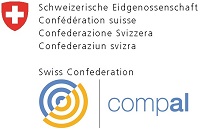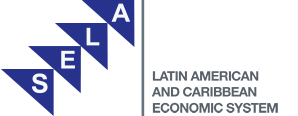AGENDA
Day 1: Wednesday, 2 November 2016
|
|
|
|
8:30 – 9:00 |
Registration |
|
9:00 – 9:30 |
OPENING SESSION
|
|
9:30 – 10:15 |
SESSION I: Status and evolution of regulatory frameworks in the field of trade and competition in Latin America and the Caribbean: towards the regulatory convergence One of the schools of thought of development economics focuses on the study of the institutions’ role in economic growth through the establishment of clear rules of game, respect for property rights and rule of law. In Latin America and the Caribbean, the institutions created as a result of subregional integration agreements have resulted in a complex network of regulatory frameworks defined at the national, bilateral and multilateral levels. In this connection, regulations have responded to different purposes in the spatial and temporal spheres in which they have been created, generating different structures in the approach to thematic areas that have become significant barriers to higher integration levels in the region. Therefore, in order to strengthen regional institutions in their efforts to achieve greater dynamism in the economic activity as a result of greater trade and investment flows, this session will present an analysis of opportunities and challenges of subregional integration mechanisms in the harmonization of regulatory frameworks in the field of trade and competition, derived from the study prepared by the Permanent Secretariat. Moderator: Virginia Cartaya, Director of Studies and Proposals of the Permanent Secretariat of SELA
|
|
10:15 – 10:45 |
Interactive debate |
|
10:45 – 11:00 |
Coffee break |
|
11:00 – 12:15 |
SESSION II: Opportunities and challenges in the harmonization of regulatory frameworks in the field of trade of subregional integration mechanisms: towards the regulatory convergence in non-tariff provisions The expansion and strengthening of trade relations in Latin American and Caribbean countries has been one of the main lines of action in the promotion of regional integration. In this connection, considerable efforts have been made in progressively reducing and eliminating tariff barriers, with around 89%[1] of intra-regional trade being carried out on a preferential basis in 2010. However, intra-regional trade flows have represented a low percentage of total trade, and the average levels of openness to trade in the region have failed to increase significantly, showing shortfalls with respect to more economically developed countries and regions. One of the main causes of this weak dynamism is the insistence on implementing non-tariff barriers, which will be analyzed during this session with the aim of assessing opportunities and challenges in the efforts to achieve regulatory convergence. Moderator: Virginia Cartaya, Director of Studies and Proposals of the Permanent Secretariat of SELA
[1] World Bank, IDB & ECLAC (2010). Bridging Integration Gaps: Scenarios and Policy Recommendations to Promote Physical Infrastructure and Reduce Intra-Regional Trade Costs. |
|
12:15 – 12:45 |
Interactive debate |
|
12:45 – 14:15 |
Free time for lunch |
|
14:15 – 15:30 |
SESSION III: Analysis of rules on protection of free competition and cross-border free competition in subregional integration mechanisms: areas to move forward in regulatory convergence. Free competition is a principle that enables the efficient allocation of productive resources, making it possible for an economy to operate at the levels of its production-possibility frontier. The presence of a greater number of economic agents in the productive work within the market reduces the power of companies, promotes innovation for the creation of new products and processes to reduce costs and facilitates consumer access to goods and services at lower prices However, taking advantage of these benefits of free competition will be possible insofar as the regulatory frameworks in force optimally regulate business practices. For that reason, participants in this session will analyze the regulatory aspects and the possibilities for convergence of frameworks governing free competition and cross-border free competition in subregional integration mechanisms. Moderator: Virginia Cartaya, Director of Studies and Proposals of the Permanent Secretariat of SELA
|
|
15:30 – 16:00 |
Interactive debate |
|
16:00 - 16:15 |
Coffee break |
|
16:15 – 17:00 |
SESSION IV: Conclusions about the analysis of opportunities and challenges in the harmonization of regulatory frameworks in the field of trade of subregional integration mechanisms In this session, a systematic evaluation will be made of the opportunities and challenges in the harmonization of regulatory frameworks in the field of trade and competition in subregional integration mechanisms. In particular, this space for discussion will enable participants to jointly address the existing analyses on regulatory frameworks in the field of trade and competition, highlighting the main areas of convergence in both regulatory areas. Moderator: Virginia Cartaya, Director of Studies and Proposals of the Permanent Secretariat of SELA This session will be introduced by Eugenio Rivera Urrutia, SELA’s Consultant. |
|
Day 2: Thursday, 3 November 2016 |
|
| 09:30 – 11:00 |
SESSION V: Treatment of dumping by trade (anti-dumping) and competition (antitrust) laws In this plenary session, a presentation will be made of the study recently prepared by UNCTAD on the treatment of dumping by trade and competition laws in Latin America. The document considers the behaviour of economic agents from the perspective of different legislative frameworks in the region. Several areas of opportunity arise from the systemic analysis of the legal framework to harmonize laws and improve the mechanisms for communication and exchange of information. The presentation will be followed by three presentations on the subject. Moderator: Juan Luis Crucelegui, Chief of the Competition and Consumer Policies Branch, UNCTAD |
| 11:00 – 11:15 | Coffee break |
| 11:15 – 12:00 | Interactive debate |
| 12:00 – 13:30 | Free time for lunch |
| 13:30 – 15:30 |
DISCUSSION GROUPS The different groups will discuss the conclusions and recommendations arising from the report on the treatment of dumping by trade and competition laws in Latin America. Discussion group 1: Treatment of dumping in regional integration systems - Summary slide of conclusions presented by the Discussion Group 1 Subcontinental integration systems involve different degrees of institutional cooperation. In certain cases, we observe common institutions among countries; in others, the recognition of local laws and the establishment of coordination mechanisms. This discussion group will analyze and discuss the cases of integration in the region.
Discussion group 2: Benefits of learning from trade agreements and the importance of the institutional design Multilateral or bilateral agreements show examples of coordination and cooperation among the agencies responsible for conducting investigations of unfair international trade practices, from the adoption of common laws to the non-application of anti-dumping rights. In addition, a discussion will be held regarding the importance of an institutional design with a comprehensive view on both issues.
Thematic session 3: Improve international cooperation in the field of competition and coordination mechanisms among trade and competition agencies. In order to achieve the full potential of a globalized economy, focused on promoting growth and sustainable development, the interaction among the agencies responsible for competition and trade policies is essential. An analysis will be made of the importance of international cooperation, particularly in the field of competition, and the need to strengthen multilateral spaces that encourage the implementation of best practices on competition in countries.
|
|
15:30 - 15:45 |
Coffee break |
| 15:45 – 16:15 |
SESSION VI: Conclusion and sharing of thematic sessions Introduction: Juan Luis Crucelegui, Chief of the Competition and Consumer Policies Branch, UNCTAD |
| 16:15 – 17:00 |
Interactive debate |
|
Day 3: Friday 4 November 2016 |
|
| 09:30 – 10:30 |
SESSION VII: Future of the WGTC: Work Programme At the Fifth Annual Meeting of the WGTC, the Member States showed unanimous interest in continuing and strengthening the work of the group. In this session, different options are submitted for consideration of the members, such as joint studies, ad hoc groups, and search for new headquarters. Moderator: Edgardo Alvarado, Economic Director, Commission for the Defense and Promotion of Competition (CDPC)
|
| 10:30 – 10:45 | Coffee break |
| 10:45 – 11:15 | CONCLUSIONS AND RECOMMENDATIONS |
| 11:15 – 12:00 |
SESSION VIII: Closing session
|
| 12:00 |
Free time for lunch |
| 14:00 | Tourist activity |










